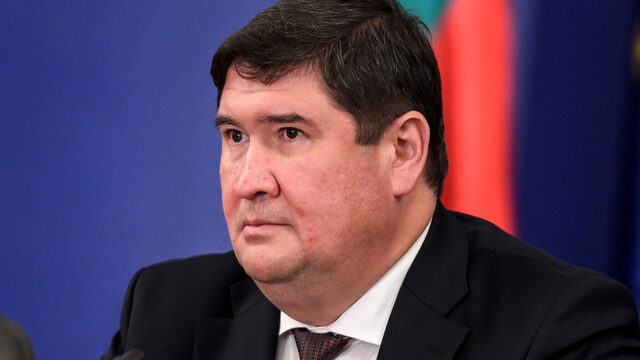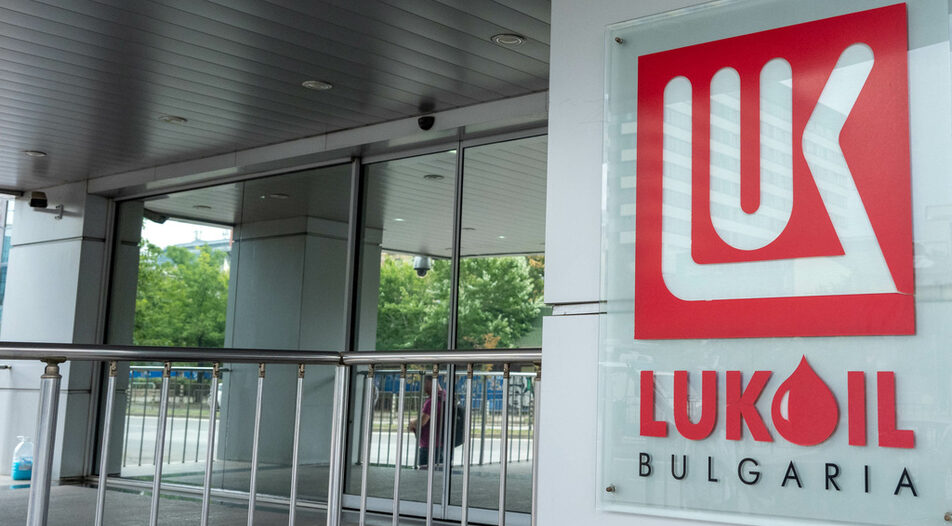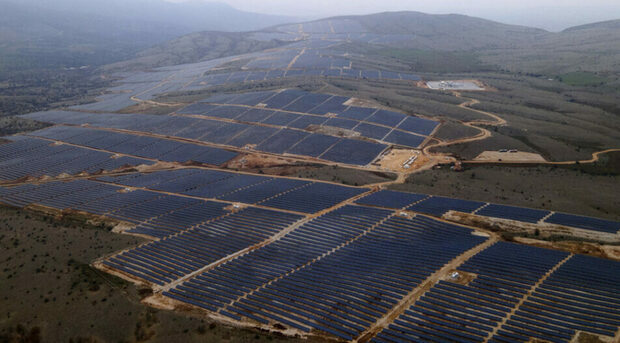The year in which Ukraine was invaded by Russia turned out to be one of the best for Russia's Lukoil business in little old Bulgaria. The Burgas refinery produced almost double its fuel production on the previous year, sold it at a high price, took a solid 80% of the Bulgarian diesel and gasoline market and indirectly exported huge quantities to Ukraine. On a slightly more modest scale, the situation benefited Georgi Samuilov's Insa Oil, too, which also imports from Russia and has taken the remaining share of the local market, exporting heavily to Ukraine.
The million-dollar question now is what comes next after the EU sanctions come into force. Until the beginning of March everything will be business as usual for both companies. The exception taken by Bulgaria, among several other EU members reliant heavily on Russian oil, and ongoing negotiations with Brussels, will probably keep the door open for more exports to Ukraine.
In short, the risk of the Burgas refinery closing and the country starting to rely solely on imports of finished fuels seems slim. So no apocalypse looms just yet. But for the next two years the Bulgarian market will remain occupied by Russian fuels. And because of the lack of competition, prices for customers will approximate those in surrounding countries using much more expensive crude oil than the current Russian prices. Alternatives, on the other hand, seem hard to come by - both when it comes to finding new suppliers and new owners for the Lukoil Neftochim refinery.
A refinery in the geopolitical vortex
Currently, the Russian owner of the Burgas refinery is bidding to stay on the market. During a public partnership council between the refinery's management and representatives from the region held in early December, Lukoil Neftochim Burgas' chairman of the board, Ilshat Sharafutdinov, announced that the refinery is preparing to switch to processing non-Russian oil from 2025. The firm did not respond to Capital's questions, but industry insiders did comment that the company has contracted Saudi Arabian volumes for February that will provide 10-20% of the needed crude, enabling the refinery to supply diesel to its chains in N. Macedonia, Serbia and Romania after the suspension of exports of diesel produced from Russian oil.
However, the medium-term presence of Russia's Lukoil in EU countries remains a difficult task, with the refinery announcing that it has been operating in manual mode all summer and in the face of a "perfect storm" in which everyone is thinking about how to survive. Switzerland-based Russian trader giant Litasco has opened a Dubai headquarters, with analysts expecting the Russian company to focus more on its projects in the Middle East, Russia, Kazakhstan and Azerbaijan. The group is trying to sell its refinery in Sicily, where US private equity firm Crossbridge, backed by Swiss trader Vitol, is showing interest, with the proposed price just under 1.5 billion euros, according to Reuters.
State, Russians or someone else
The logistical task of regularly refueling the Burgas plant with oil remains difficult to solve. Currently, according to accounts from the industry, four tankers have constantly been working on supplying the Novorossiysk-Rosenets route, and if such logistics were to be conducted via the Bosphorus and Dardanelles, the number of vessels would have to jump to 14-15 due to the longer delivery time of 25-30 days. Costs would become more expensive, and coordination would become ever more complicated. The industry also commented that the crude oil markets for Bulgaria are Saudi Arabia, Iran, Algeria, Egypt and the United Arab Emirates. Another possibility is oil arriving through the Caspian Pipeline Consortium pipeline, which supplies crude to Romania's Rompetrol, owned by KazMunayGas. It ends at the Russian port of Novorossiysk.
Like President Rumen Radev, Lukoil has also raised the issue of reviving the Burgas-Alexandroupolis project, which is supposed to be implemented by the state or by a public-private partnership in a manner that would avoid the straits. However, this is difficult to implement, as banks no longer lend money for such projects, EU funds cannot be used, and Burgas has rejected the project in a local referendum because of environmental risks. Refinery representatives also spoke about the need to build a tank farm with a capacity of at least 1 million tonnes to blend different varieties of oil into a mix of consistent quality and provide the necessary buffer stocks in case of supply delays, turning their base into a Black Sea oil hub.

Bulgarian politicians made inroads about the possible entry of state representatives in the operational management of the refinery, which looks good on paper, but also carries risks.
A previous state venture with far more modest aims, the State Oil Company, was closed down before it became operational, wasting BGN 50 million on salaries. Or, if a change of ownership is needed, finding a strategic investor with resources and experience would seem a more sensible option, according to industry representatives.
Finding a buyer for the Burgas refinery, however, would be a rather difficult task due to the unattractiveness of the refining business in Europe, which has been declining in recent years due to the turn to green technologies. If the EU's plan to ban new cars with internal combustion engines by 2035 were to be implemented, the situation for refineries would deteriorate even further. Industry representatives say that the only potential interest may come from the Black Sea region, where Azerbaijan's SOCAR, which has a huge refinery in Turkey, and Kazakhstan's KazMunayGas, owner of Romania's Rompetrol hold strong positions.
A year of war, a year of no market
While forecasting Lukoil's refinery future remains a difficult task, the war has already brought some definitive changes to the market. With the sanctions against Russia, the price of Russian Brent brand oil has become the most attractive compared to other types. The Russian refinery near Burgas, which over the years had been operating with larger quantities of non-Russian crude in its mix, switched at some point to 100% Russian oil. This gave the local producer a significant price advantage in the domestic wholesale market, with imports of finished products becoming impossible for competitors due to the guaranteed loss.
The perennial question of why Bulgarian consumers felt little benefit from processing cheaper Russian crude in Burgas was explained on several occasions by the industry, citing the widening chasm between the price of oil and finished fuels. The reason is that Lukoil's wholesale fuel prices follow Platts agency quotes with delivery in the Mediterranean region, not oil movements.
"Up until the war, crude oil prices and prices in Bulgaria were running parallel. After the war, the curves diverged - the price of Russian crude stabilized and then dropped significantly, while fuel prices paid by Bulgarian consumers remained significantly on the upside," economist Lachezar Bogdanov says. In other words, the profits remain with the Russian parent companies in the Netherlands and Switzerland, while the benefits to the end consumer are minimal. Compared with neighboring markets, however, Lukoil's wholesale prices are competitive, enabling some local players to make profits from exports to Ukraine and other countries in the region.
The Bulgaria exception
While the domestic market was becoming increasingly Russian with a share of 85% of the diesel market and 75% of the gasoline market according to Lukoil's own data, Brussels gave the country two years to adapt to the sanctions, i.e. the opportunity to import Russian oil and Russian products for the needs of the market. The refinery has processed 7.1 million tonnes of oil this year, producing 6.6 million tonnes of various fuels, 57% of which went for export. The subsequent export of the products produced from Russian oil has become the main politico-economic issue in Bulgaria. The refinery has said that it cannot sell certain products that come out of the refinery in the country, which can lead to the filling up of warehouses and, therefore, to the closure of the enterprise.
The caretaker government has decided to allow exports until 5 March 2023 and of only certain products like marine fuel, aviation fuel, boiler fuel after that date. In return, Lukoil Neftochim Burgas has promised to transfer all its economic activity and profits to the country from 1 January 2023, i.e. to stop tolling for the Russian group's subsidiary Lukoil Benelux and to return to the previous scheme - buying, refining and selling - under which it operated until the end of 2020. The state hopes to get BGN 700 million out of this, but only if the large spread between the price of Brent and Urals is maintained, which cannot be predicted.
Meanwhile, the issue has become politicized, with almost all parliamentary parties coming out with bills on the subject of exports, control of the enterprise and taxation of profits, with most uniting behind the Democratic Bulgaria proposal to appoint a state-appointed "special commercial manager" at the refinery if needed. The latter, however, risks effectively bringing the refinery under the control of certain economic circles close to the government.
As the fuel market is increasingly becoming governed by politicians' sleight of hand, certain companies have been able to reap the benefits. The final result of all this is unknown, but it is surely going to be costly for consumers.
In 2022, Lukoil Neftochim Burgas processed 7.1 million tonnes of oil feedstock (vs. 4.2 million the previous year), of which 1.7 million tonnes of high-octane motor gasoline, 3.1 million tonnes of diesel fuel and 1.8 million tonnes of other fuels, special products and polymers were produced. Finished goods supplies to the domestic market accounted for 43%: A-95 and A-100 motor gasoline, diesel fuel, aviation fuel, propane-butane and bitumen. The remaining 57% of production is exported, with the addition of boiler fuel, jet aviation fuel, marine fuel, virgin naphtha (a feedstock for the petrochemical industry), propylene, polypropylene and sulfur to the domestic mix, for which there is no domestic market.
The year in which Ukraine was invaded by Russia turned out to be one of the best for Russia's Lukoil business in little old Bulgaria. The Burgas refinery produced almost double its fuel production on the previous year, sold it at a high price, took a solid 80% of the Bulgarian diesel and gasoline market and indirectly exported huge quantities to Ukraine. On a slightly more modest scale, the situation benefited Georgi Samuilov's Insa Oil, too, which also imports from Russia and has taken the remaining share of the local market, exporting heavily to Ukraine.
The million-dollar question now is what comes next after the EU sanctions come into force. Until the beginning of March everything will be business as usual for both companies. The exception taken by Bulgaria, among several other EU members reliant heavily on Russian oil, and ongoing negotiations with Brussels, will probably keep the door open for more exports to Ukraine.












